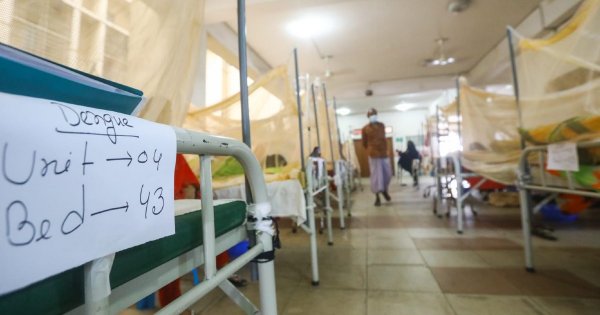Hospitals in Karachi and other areas of Sindh are currently overwhelmed by a sharp rise in mosquito-borne diseases such as dengue, chikungunya, and malaria.
Doctors highlight a significant increase in dengue and chikungunya in Karachi, while malaria cases are more common in Sindh’s rural regions. Major hospital emergency rooms are seeing a high influx of patients displaying severe symptoms like high fever, joint pain, and low platelet counts, particularly among those with dengue.
Dr. Imran Sarwar, head of emergency services at Civil Hospital, reports a daily rise in patient admissions for these diseases, noting a sharper increase in chikungunya this year.
There is also a reported shortage of platelets, with demand surpassing supply. Residents have criticized the government’s mosquito control efforts, pointing out that measures are often ineffective, leaving both urban and rural areas prone to disease outbreaks.
This month, a notable increase in mosquito-borne illnesses, primarily dengue and malaria, has been observed across Sindh. This uptick is linked to poor drainage, substandard sanitation, and open water storage in homes amidst ongoing monsoon rains.
Official data indicates a 135% rise in dengue cases in the first seven months of this year compared to 2023, though the numbers are still lower than in 2022. Sindh has documented 1,167 cases of dengue, with 1,022 in Karachi alone. Malaria cases have escalated to 149,102, with 1,074 in Karachi. District East has the highest dengue incidence at 329 cases, and District Malir records the most malaria cases at 543.
Experts link the rise in cases to poor drainage, open water storage, and insufficient mosquito control measures. They also cite climate change and a lack of public awareness as contributing factors to the problem.






